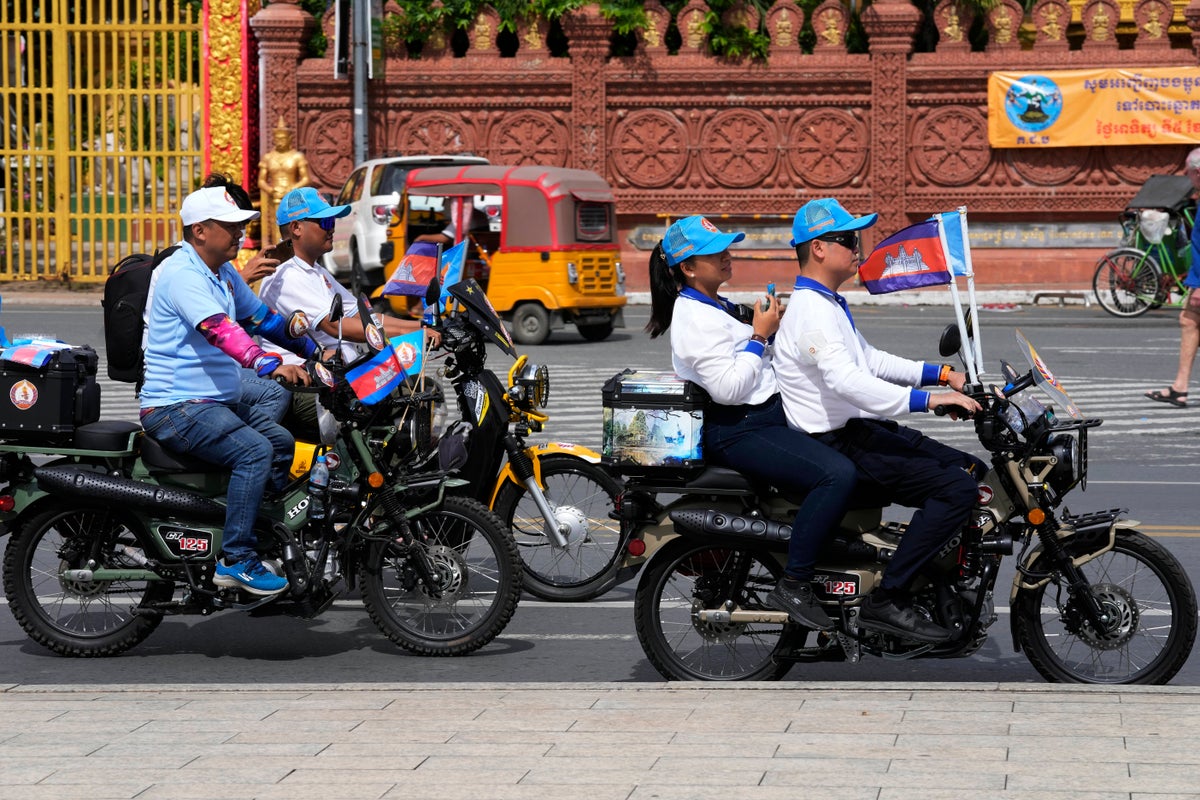
Cambodians vote Sunday in local elections that are their first chance to go to the polls since the ruling party of long-serving Prime Minister Hun Sen swept a 2018 general election that was widely criticized as unfair.
Hun Sen’s Cambodian People’s Party is certain to sail to easy victory again following what the U.N. Human Rights Office said was a pattern of “threats, intimidation and obstruction targeting opposition candidates. ”
It said that candidates have faced numerous restrictions and reprisals that have hindered their activities. and several have been imprisoned. Four days before the election, at least six opposition candidates and activists are in detention awaiting trial while others summoned on politically motivated charges have gone into hiding, the Human Rights Office said in a statement.
Cambodia's delegation at the U.N. Geneva offices said in a statement that the criticism was “erroneous, politicized and selective.” It said “all political parties, including opposition ones, have fully exercised their rights in line with the laws and registered schedules without any threats and obstruction.”
Hun Sen, an authoritarian ruler in a nominally democratic state, has held power for 37 years. He has said he intends to stay in office until 2028 and has endorsed one of his sons to succeed him.
His party is the only one to field candidates nationwide in all 1,652 communes. Its only serious rival, the Candlelight Party, has candidates in 1,632 communes, and the royalist FUNCINPEC Party has challengers in 688 communes. There are a total of 82,786 candidates from 17 political parties with 9.2 million registered voters.
The local elections are held a year ahead of the general election, and are regarded as a test of the parties’ strength.
In the last communal elections in 2017, the main opposition Cambodia National Rescue Party made an unexpectedly strong showing, which led Hun Sen’s government to crack down on it as well as independent media. The party was dissolved by the Supreme Court on a charge of treason, widely seen as politically motivated, and the free press was driven out of business or cowed into submission.
Without the Cambodian National Rescue Party on the ballot, Hun Sen’s party was assured of victory in the general election the following year.
Several Western nations imposed sanctions on the government after concluding the 2018 election was neither free nor fair. The harshest measure came from the European Union, which withdrew some preferential trading privileges.
The dissolved Cambodia National Rescue Party, whose sitting members were also ousted from their political posts, remains banned, with most of its top leaders in exile.
The Candlelight Party is now seeking to challenge the ruling party by rallying its former supporters, though its activities have remained severely curtailed.
The original Candlelight Party was founded in 1995 by Sam Rainsy, the main political rival of Hun Sen, and later folded into the Cambodia National Rescue Party. Sam Rainsy, faced with legal harassment, went into self-exile in France, and the co-founder of the Cambodia National Rescue Party, Kem Sokha, is currently being tried on a thinly supported treason charge.







